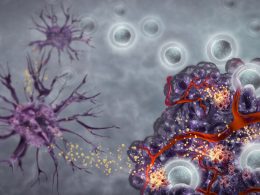Are you looking to improve your gut health and overall wellbeing? Look no further than probiotics – the tiny microorganisms with huge potential. While most commonly associated with digestive aid, these friendly bacteria offer a wealth of surprising benefits that extend far beyond the gut. From boosting immunity to reducing inflammation and even improving mental health, the science behind probiotics is fascinating and ever-evolving. So let’s dive in and uncover all the incredible ways that probiotics can help us feel our best!
What are Probiotics?
The human gut is home to trillions of bacteria, both good and bad. Probiotics are live bacteria that offer health benefits when consumed. They can be found in fermented foods like yogurt and sauerkraut, or they can be taken as a supplement. Probiotics are thought to improve gut health by helping balance the ratio of good to bad bacteria, reducing inflammation, and improving digestion.
There is a growing body of scientific evidence to support the claim that probiotics offer health benefits. A review of the literature found that probiotics may help reduce the risk of diarrheal infections, relieve symptoms of irritable bowel syndrome (IBS), and improve gut barrier function. Additionally, probiotics have been shown to boost immunity, reduce inflammation, and promote healthy skin.
Despite the promising research, it’s important to remember that probiotics are live bacteria and they can cause side effects in some people. It’s always best to talk to your doctor before taking any supplements, especially if you have a medical condition or are taking medications.
The Different Types of Probiotics
Probiotics are live microorganisms that offer a range of health benefits when consumed. They can be found in many food sources, such as yogurt, kefir, sauerkraut, and kimchi, as well as supplements.
There are different types of probiotics, each with its own set of benefits. Lactobacillus is the most common type of probiotic and can help with diarrhea, irritable bowel syndrome, and intestinal infections. Bifidobacterium is another common type that can help with gastrointestinal issues and vaginal health.
Other less common types of probiotics include Saccharomyces boulardii and Streptococcus thermophilus. Probiotics are also available in different strains, such as Lactobacillus acidophilus and Bifidobacterium longum. Each strain has its own unique set of benefits.
Probiotics are generally considered safe for most people, but some may experience side effects such as gas or bloating. It’s important to start with a small dose and increase gradually as your body adjusts. Those with a weakened immune system or who are taking antibiotics should speak to a doctor before taking probiotics.
The benefits of Probiotics
The benefits of Probiotics are vast and varied. From improving digestive health to boosting immunity, Probiotics offer a host of benefits for overall health and well-being. Here, we take a closer look at the science behind some of the most well-known Probiotic benefits.
Gut health is at the center of Probiotic research. The gut microbiota, made up of trillions of bacteria, has a profound impact on human health. Probiotics are live microorganisms that can beneficially affect the host by improving the composition of the gut microbiota (1). In other words, Probiotics help maintain a healthy balance of good bacteria in the gut. This is important because an imbalance in gut bacteria has been linked to a variety of diseases and conditions, including irritable bowel syndrome (IBS), inflammatory bowel disease (IBD), obesity, and diabetes (2, 3).
There is also evidence that Probiotics can help boost immunity. probiotic supplementation has been shown to improve immune function in both animal and human studies (4). For example, one study showed that daily Probiotic supplementation reduced the incidence and severity of upper respiratory tract infections in young children (5). Additionally, Probiotic supplementation has been shown to increase levels of immunoglobulin A (IgA) – an antibody that plays a key role in immunity (6).
In addition to their gut and immune system benefits, Probiotics have also been shown to promote skin health. One study found that Lact
Probiotic Foods
There are a lot of probiotic foods out there that can have a positive impact on your gut health. Here are some of the most surprising benefits of probiotics:
1. Probiotics can help improve your digestion.
If you suffer from digestive issues like constipation, diarrhea, or gas, then probiotics can help. Probiotics work by restoring the balance of good and bad bacteria in your gut, which can help improve your overall digestion.
2. Probiotics can boost your immune system.
Probiotics can help strengthen your immune system by helping to fight off harmful bacteria and viruses. This is especially important during cold and flu season.
3. Probiotics can help improve your skin health.
If you suffer from skin conditions like acne or eczema, then probiotics may be able to help. Probiotics can help improve your skin health by reducing inflammation and balancing the good and bad bacteria on your skin.
4. Probiotics can help improve your mental health.
How to take Probiotics
If you’re like most people, you probably think of probiotics as something you take to avoid getting sick. But did you know that these “good” bacteria can also have surprising health benefits?
In recent years, probiotics have been shown to improve digestive health, boost immunity, and even help with weight loss. So how do they work?
Probiotics are live microorganisms (in most cases, bacteria) that are similar to the good bacteria found in your gut. When taken in adequate amounts, they can help restore the balance of gut bacteria, which is often disrupted by factors like antibiotic use, poor diet, and stress.
Taking probiotics is simple – you can find them in supplement form or in fermented foods like yogurt, kimchi, and sauerkraut. Just make sure to choose a product that contains live and active cultures.
Now that you know all about the benefits of probiotics, it’s time to start incorporating them into your diet!
Are there any side effects?
There are a few potential side effects associated with taking probiotics, but they are generally mild and temporary. The most common side effect is digestive distress, such as gas or bloating. This is usually due to the body adjusting to the new bacteria in the gut. Probiotics may also cause mild skin rashes or itching in some people. If you experience any of these side effects, it’s important to continue taking the probiotics for at least a week or two to give your body time to adjust. If the side effects persist after this time, you should discontinue use and consult your doctor.
Conclusion
The science is clear; probiotics can have a profound impact on our gut health and overall wellbeing. With ongoing research uncovering more and more benefits of supplementation, the use of probiotics has become increasingly popular in recent years. Whether you’re looking to improve your digestion, boost your immune system or reduce inflammation, adding some probiotic-rich foods or supplements into your daily routine could be one of the best decisions you make for your health this year.










